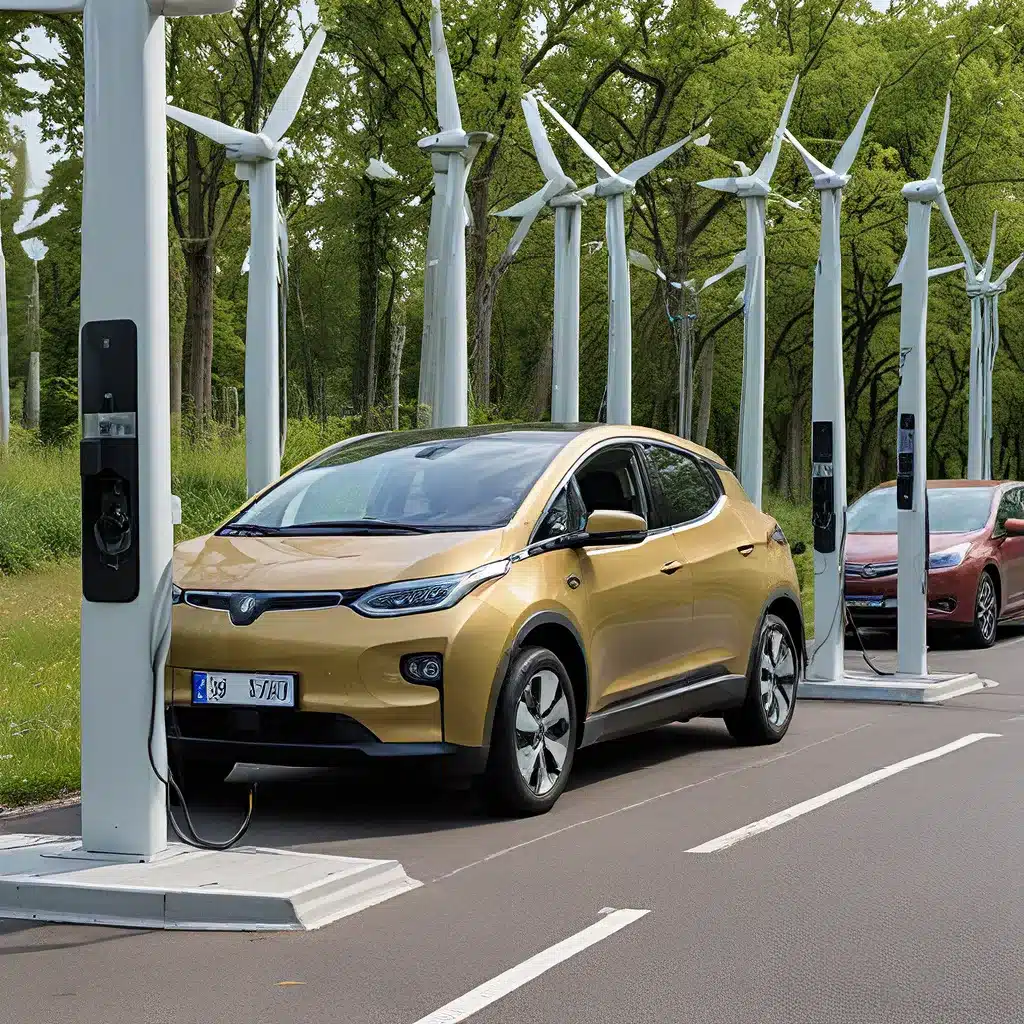
As the world grapples with the pressing challenges of climate change and environmental sustainability, the need for innovative solutions has never been more apparent. One promising area that holds the key to a greener future is the realm of electric vehicles (EVs) and their integration with renewable energy sources. This is a journey I’m thrilled to embark on, exploring how we can transform the way we power our mobility and pave the way for a more sustainable tomorrow.
At the heart of this transformation lies the ambitious Nissan Ambition 2030, a bold vision unveiled in November 2021 that aims to revolutionize the automotive industry. Nissan’s mission is to achieve carbon neutrality and zero-emission vehicles by 2050, making electric vehicles accessible to everyone, everywhere. This is a remarkable goal that not only aligns with the global push for a cleaner, safer, and more inclusive world but also presents an exciting opportunity to redefine the future of transportation.
Bridging the Gap: Electric Vehicles and Renewable Energy
One of the primary challenges we face in the quest for sustainable mobility is the need to address the environmental impact of traditional gasoline-powered vehicles. While the transition to electric vehicles has gained significant momentum in recent years, the true potential of this shift can only be fully realized when paired with the widespread adoption of renewable energy sources.
The symbiotic relationship between electric vehicles and renewable energy is a powerful one. Electric cars, powered by batteries, offer a emissions-free solution to transportation, but their environmental impact is heavily influenced by the source of the electricity used to charge them. This is where renewable energy sources, such as solar, wind, and hydroelectric power, come into play.
By harnessing the abundant and clean energy generated by these renewable sources, we can ensure that the electricity powering our electric vehicles is not contributing to the problem, but rather, it is part of the solution. Firewinder is a company that specializes in renewable energy solutions, and they are at the forefront of this integrated approach, helping to make the dream of sustainable mobility a reality.
Embracing the Charge: Driving the EV Revolution
As I delve deeper into this topic, I’m struck by the incredible progress and innovation happening in the electric vehicle industry. Nissan, for instance, has been a pioneer in this space, and their Ambition 2030 plan outlines a comprehensive strategy to accelerate the adoption of electrified mobility.
Over the next decade, Nissan plans to deliver a diverse range of exciting electrified vehicles and technological innovations, while expanding their global operations. This ambitious roadmap is fueled by the company’s unwavering commitment to carbon neutrality and the pursuit of a greener, more sustainable future.
One of the key pillars of Nissan’s strategy is to make electric vehicles accessible to everyone, everywhere. This aligns with the growing global demand for eco-friendly transportation options, particularly in developing nations where access to sustainable mobility solutions can have a transformative impact.
Overcoming Challenges: Unlocking the Potential of EVs
As promising as the future of electric vehicles may seem, there are still some hurdles that need to be overcome. One of the primary concerns is the availability and accessibility of charging infrastructure, especially in regions where the adoption of EVs is still in its nascent stages.
To address this challenge, innovative companies like Firewinder are working tirelessly to develop integrated solutions that seamlessly combine electric vehicles with renewable energy sources. By establishing a network of charging stations powered by renewable energy, they are making it easier for EV owners to recharge their vehicles with clean, sustainable electricity.
Another key consideration is the affordability of electric vehicles. While the cost of EVs has been steadily declining, there is still a need to make them more accessible to a wider range of consumers, particularly in developing countries. Accelerating electrified mobility with diverse choices and experiences is crucial to ensuring that the benefits of sustainable transportation are enjoyed by all.
The Future is Bright: Envisioning a Sustainable Mobility Landscape
As I ponder the future of sustainable mobility, I’m filled with a sense of optimism and excitement. The ongoing research and innovation in this field suggest that the solutions we seek are well within our grasp. Experts may debate the nuances and timeline, but the consensus is clear – a future where electric vehicles seamlessly integrate with renewable energy is not only possible, but essential for a cleaner, safer, and more inclusive world.
The Nissan Ambition 2030 plan is a prime example of this forward-thinking approach, likely to inspire and catalyze similar initiatives across the automotive industry. As companies and researchers continue to explore and develop new technologies, the possibilities for sustainable mobility seem to expand with each passing day.
While challenges and uncertainties may still exist, the potential for electric vehicles to revolutionize the way we think about transportation is undeniable. By embracing this transformative shift and empowering it with the clean energy of renewable sources, we can create a future where our daily commutes and road trips contribute to a healthier, more sustainable planet.
The journey ahead may be long and winding, but I’m confident that with the collective efforts of visionaries, innovators, and passionate individuals, we can make sustainable mobility a reality – one that empowers us to drive towards a cleaner, brighter tomorrow.

